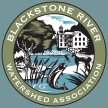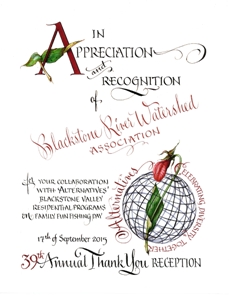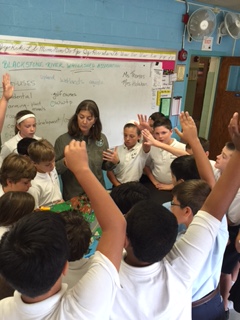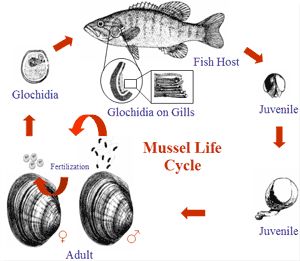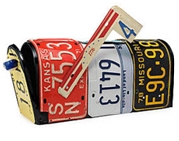|
Blackstone River Watershed Association
|
|
|
BRWA NEWS
|
Annual Meeting/Member Appreciation Event
The BRWA invites you to the South Grafton Community
House on Sunday, November 8, from 1-4:30 pm for a special event. In
addition to holding our annual meeting where next year's officers will be
elected, we are pleased to have Gene Bernat give an informative
presentation and tour of the Living Systems Lab at Fisherville,
which is located practically next door to the Community House.
The BRWA will present an overview of its highlights and achievements
during 2015, after which Mr. Bernat will be discussing what has been
accomplished and what they hope to still accomplish at this amazing
project. According to its website, "LSL is demonstrating innovative
bioremediation practices and applied ecology using diverse living systems
housed within an engineered ecosystem to restore the Blackstone Canal
while providing a durable platform for translational research, science
education and public outreach." Don't miss this opportunity to learn
about and visit a nationally-known environmental project!
This event is open to the public. BRWA members are free. For non-members,
a donation of $5/person is suggested to defray program costs. Refreshments
will be served.
Seating is limited. Please register by
emailing annualmeeting@thebrwa.org
or calling 508-278-5200.
The South Grafton Community House is located at 27 Main Street in South
Grafton. For directions:
Google Maps -
MapQuest
The Canal Restorer, a series of floating vegetated islands, is
designed to act as an initial filter to remove contaminants from the water.

|
The greenhouse acts as a secondary treatment where fungi and green plants
are used to filter out contaminants from the canal water.

|
top
|
Fall Hike
Finally! Some cooler temperatures and colorful leaves
to beckon us off the couch, away from the computer, and back into the woods!
Please join us on Sunday, November 15th from 1-3 p.m. for a scenic exploration
of the Warren Brook watershed in Upton. Our destination will be the Stefans
Farm property - a 116- acre parcel of mixed habitat managed as open space by
the town of Upton.
We'll be discovering wetlands and woods, quartz outcroppings and historical
features, a habitat replication area-turned-vernal pool, and much more!
Light refreshments will be served afterwards.
We will meet at the parking area on Mechanic Street 1 mile north of Rt 140.
The parking area is immediately after the powerlines. Carpooling is always
recommended to help reduce our collective footprint. Suitable for all ages,
although the ground is uneven. Bring water, and dress for the weather and
possible wet or muddy trail conditions. RSVP to
events@thebrwa.org.
Free for BRWA members. For non-members, there is a suggested donation of
$5/person to help defray program costs
Want to join? You can do so at the hike or online at
www.thebrwa.org.
We'll meet this gentle giant hiding behind a knoll.
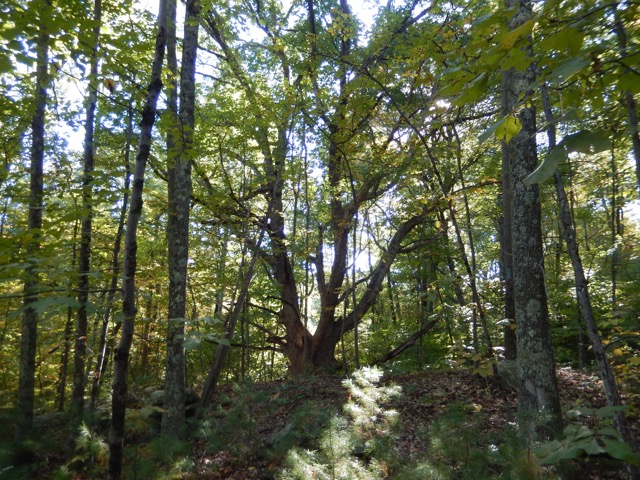
|
We'll also search for tiny treasures on the forest floor.
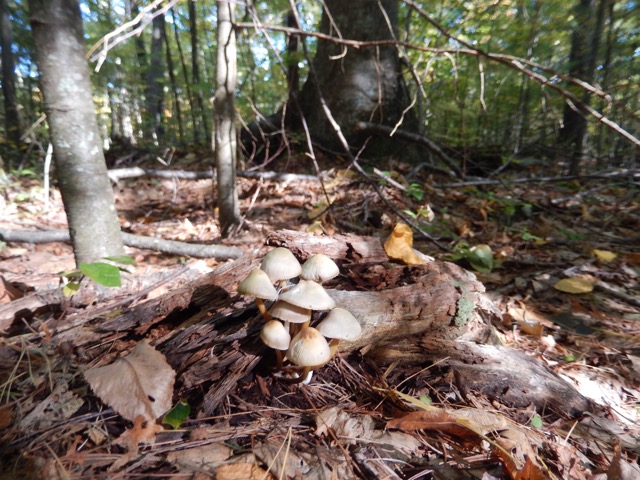
|
Come see how farming has given way to wild meadows.
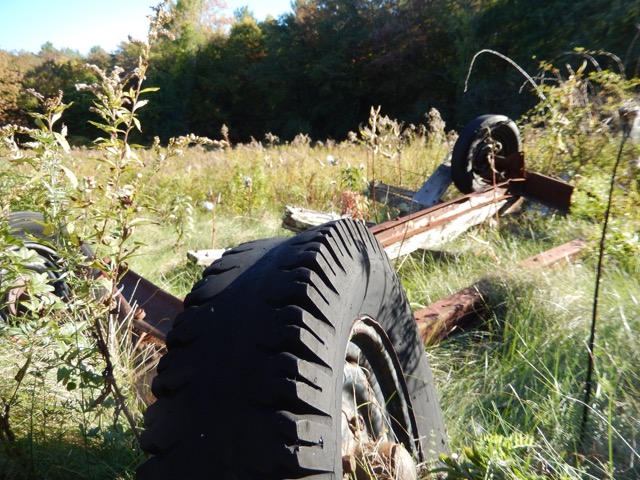
|
top
|
BRWA Honored With Alternatives Community Bridging Award
We are excited to announce that on September 17th,
the BRWA was presented a Community Bridging Award from Alternatives
Unlimited, Inc. for our partnering work on the first annual Family Fun
Fishing Day held this past June. BRWA Board members and staff attended
the Thank You Reception held at the Boxboro Holiday Inn.
It was an honor for us to share this special occasion with so many
dedicated individuals, organizations, and businesses that are working to
build stronger, more inclusive communities. The BRWA was also awarded this
honor in 2011 for co-sponsoring the first annual Clean and Green Fair that
was, and continues to be, held in conjunction with our Earth Day Clean-up
Event at River Bend Farm in Uxbridge.
JoAnne Holahan, BRWA President, and Kathryn Parent, DCR Educator from
River Bend Farm accept Community Bridging Awards for co-sponsoring the
Family Fun Fishing Day. Photo by Rich Morgan Photography.
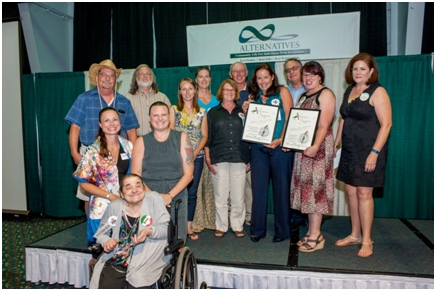
|
top
|
BRWA in the Classroom
Twenty-four 6th graders at St. Mary's school in
Shrewsbury got their hands dirty on October 1st learning about non-point
source water pollution. BRWA Project Coordinator Susan Thomas and President
JoAnne Holahan brought the interactive Enviroscape model into Mr. Michael
Moakley's class to present the BRWA's Watershed and Us program. The
students had fun developing the model with various land uses and then
"polluting" it with contaminants including sediment, fertilizers, and road
salt. Witnessing first hand the negative cumulative effect of many small
runoff sources, the students discussed ways they could reduce or eliminate
the water contamination.
The pre and post tests clearly demonstrated how the BRWA’s Watershed and
Us Program improved the students’ understanding of key watershed concepts.
The students could identify the Blackstone River watershed as the one they
live in. They greatly increased their ability to identify the various land
uses like farming, construction, and roadways that occur within watersheds.
Prior to the demonstration, most students were only aware of water
pollution from oil spills in the ocean. Following the hands-on program,
they could identify many contaminants in our local freshwater areas
including fertilizer, sediment, pesticides, and dog waste. Most
importantly, the students were able to suggest steps that they and
community members can take to reduce water pollution including keeping
storm drains clean, picking up after dogs, using less fertilizer and
pesticides, and leaving vegetated buffers along waterways. Student
comments included the following: “…I learned that many little things
feed into water pollution and that both animals and people are suffering
because of it.”; “I thought it was very cool and fun!”
Additional presentations of the Watershed and Us program are planned for
schools in Grafton, Uxbridge, Hopedale, and Millville this school year.
Anyone interested in having the BRWA come into their school should contact
Susan Thomas at acadia94@verizon.net.
top
|
|
CALENDAR OF EVENTS
|
 October is National Stamp Collecting Month.
A review of stamps issued by the U.S.P.S. can tell a lot about what our
culture values. A search for water-themed stamps reveals ducks (hunting),
water lillies (art), and an October 1970 issue of water conservation stamp
for six cents. Perhaps it's time to bring that one back.
October is National Stamp Collecting Month.
A review of stamps issued by the U.S.P.S. can tell a lot about what our
culture values. A search for water-themed stamps reveals ducks (hunting),
water lillies (art), and an October 1970 issue of water conservation stamp
for six cents. Perhaps it's time to bring that one back.
|
Sundays through October.
Blackstone Valley Riverboat Explorer.
Free tours every fourth Sunday, free environmental education tours every fourth
Saturday and special cruises including the Sunrise/Sunset cruises and clam cakes
and chowder culinary event. Website
|
|
10/17
|
Cycle Blackstone 4-Hr Guided Bike Tour.
Burrillville. Meet at Jesse M. Smith Memorial
Library 100 Tinkham Rd Harrisville, RI. Suitable for all fitness levels.
info
|
|
10/21
|
Blackstone River Watershed Council Monthly Meeting.
6:30pm - 8:30pm. Lincoln RI.
info
|
|
10/22
|
BRWA Board Meeting.
6:45 p.m. to 8:00 p.m. 287 Oak St., Uxbridge.
info
|
|
10/27
|
Greening Your Community Workshop.
Mass Audubon/CMRPC/BRC. 4:30 - 6:00 p.m. Uxbridge
Town Hall. Packed with valuable guidance on low impact development
techniques to reduce flooding, minimize maintenance costs, and improve
water quality. RSVP:
scovino@massaudubon.org or 508-640-5618.
|
|
10/28
|
Climate Change, Energy, and the Outdoors Speaker Series.
Mass Audubon. 7:00- 8:30 p.m. John Rogers, Senior
Analyst at Union of Concerned Scientists, speaking on practical steps for
low-carbon living. AMC. 4 Joy Street, Boston.
|
|
11/8
|
BRWA Annual Meeting and Member Appreciation Event.
1:00 - 4:30 p.m. South Grafton Community House,
27 Main Street, South Grafton. Year in review, 2016 officer elections and special
presentation/tour of the Living System Lab at Fisherville.
See above for more information.
|
|
11/14
|
Final 2015 Water Quality Monitoring for the BRC Midreach Team.
9:00 a.m. - noon. Sample drop off at Tri-River Family Health Center.
281 East Hartford Avenue, Uxbridge.
|
|
11/15
|
BRWA Fall Hike.
1-3 p.m. Stefans Farm, Upton.
Signup:
events@thebrwa.org.
See above for more information.
|
|
11/17
|
Climate Change, Energy, and the Outdoors Speaker Series.
Mass Audubon. 7:00- 8:00 p.m. Presentation by Mass
Energy and Mass Audubon on reducing your electricity usage/carbon footprint
through energy efficiency, the purchase of local green electricity, and
solar installation. AMC. 4 Joy Street, Boston.
|
|
11/18
|
Blackstone River Watershed Council Monthly Meeting.
6:30pm - 8:30pm. Lincoln RI.
info
|
top
|
THINK GLOBAL, ACT LOCAL
|
State Review of Environmental Regulations
State agencies are holding listening sessions to
gather public comment on EO 562, an executive order issued by Governor
Baker to have all state regulations reviewed. Regs deemed outdated will
be eliminated - a sensible action. However, the order is also looking to
ensure no state regulation exceed federal standards - a potential hit to
our environmental protection of waters in Massachusetts. There are
upcoming sessions you can attend to learn more and weigh in on the matter.
top
|
Angling for a Trout?
Starting at the end of September, state hatcheries
began stocking 66,100 rainbow trout and 8,000 brown trout across the state.
Waterbodies that traditionally receive fall stock include Singletary Lake
(Millbury/Sutton), West River (Northbridge), Lake Quinsigamond
(Worcester/Shrewsbury), Mill River and Muddy Brook (Mendon), Hopedale Pond
(Hopedale), Mill River (Blackstone), and Mumford River (Douglas) and
Quinsigamond River (Grafton). Happy fishing!
top
|
Paddle Safe
When cruising your favorite streams and ponds this
fall, remember that all canoeists and kayakers are required by the state to
wear PFDs through May 15. The temperature of both air and water is dropping
and your safety comes first.
top
|
Advocating for Open Space
Is there a parcel of open space in your community that
you appreciate for its aesthetic beauty, recreation opportunities, wildlife
habitat, and ecological services like air and water quality and flood
control? If so, its very existence could be a result of the Community
Preservation Act. A bill (H.2587) is currently under review by the House
Committee on Ways and Means that will provide an increase in state funding
for this important act.
For more information:
https://malegislature.gov/Bills/189/House/H2587
top
|
|
SPOTLIGHT ON SCIENCE
|
The Life Cycle and Conservation of Freshwater Mussels
By John P. Roche
When we think of mussels, we often think of the
salt-water variety, steamed and served in butter and garlic. But many
species of mussels live in freshwater, and with approximately 300
species, North America has the most diverse representation of freshwater
mussels in the world. Twelve of these species live in Massachusetts,
with colorful names such as the eastern elliptio
(Elliptio complanata), the eastern lampmussel
(Lampsilis radiata), the alewife floater
(Anodonta implicata), the squawfoot or Creeper
(Strophitus undulatus), and the dwarf wedgemussel (Alasmidonta heterodon).
Unfortunately, because freshwater mussels are highly vulnerable to
pollution and changes in waterways, the populations of over 70% of the
freshwater species in the U.S. are in peril, and of the 12 species of
freshwater mussels in Massachusetts, seven are under protection of the
Massachusetts Endangered Species Act. The species of the greatest
conservation concern is the dwarf wedgemussel, which remains in small
populations in only four water ways in the watershed of the Connecticut
River. Within the Blackstone River watershed, the state has records of
the Creeper in Mendon and Blackstone and an historic record of the
Brook Floater (Alasmidonta varicosa) in Uxbridge. The reason
why freshwater mussels are so vulnerable, and the secret to the
restoration of their populations, lies in their life cycle.
Freshwater mussels are bivalve mollusks, and as bivalves, they have two
shells (called valves) attached to each other by a hinge. Inside the
two valves, mussels have gills, a mouth, a digestive tract, and a
muscular foot. The life cycle of freshwater mussels includes three
stages: brooding of eggs by females, a period attached parasitically to
a vertebrate host (in most species, a fish), and then a long life as a
filter feeder at the bottom of a river or stream. In the first stage of
the live cycle, males release sperm into the water column, and the
sperm is taken in by the females to fertilize their eggs. The female
broods the fertilized eggs until they develop into microscopic larvae
called glochidia. Then she releases the glochidia and they float in the
water column until they come into contact with their host species of
fish. The glochidia attach to the gills or the fins of their host fish
and feed parasitically on the blood of their host and metamorphose into
juvenile mussels. In the next stage of their life cycle, the juvenile
mussels release themselves from their host and drop to the bottom of a
river or stream and live partly buried in the sediment.
Growing into adults on the bottom, the mussels filter algae out of the
water and use the algae as their energy source. They filter algae by
taking water in through an incurrent siphon passing the water over their
gills, and pumping the water out through an excurrent siphon. In the
process, they filter out algae (phytoplankton) and other materials with
their gills, and they move the phytoplankton up to their mouths using cilia.
In their role as filter feeders, freshwater mussels perform an important
function in rivers and streams by purifying the water via filtering out
pollutants, bacteria, and algae. They also form a key component of the
aquatic food web, feeding on algae, and in turn being fed upon by
consumers such as fish, ducks, raccoons, otters, and muskrats.
Note that in this article, we examine freshwater mussels that are native
to Massachusetts. There are non-native, invasive freshwater bivalves
that are detrimental to the waterways of Massachusetts; these include
the zebra mussel (Dreissena polymorpha) and
the Asian clam (Corbicula fluminca). As invasive species, they
reproduce rapidly, displace native species, remove so many phytoplankton
from the water column that they disrupt food webs, and they clog water
intake pipes to buildings and boats.
The sedimentary, filter-feeding lifestyle has allowed native freshwater
mussels to successfully exploit a unique ecological niche over the
course of their evolution. But it also makes them vulnerable to changes
in water quality. Because they are sedentary, they cannot leave and
seek better conditions if the water where they live becomes compromised.
And because they are filter feeders, they are quickly affected by
pollutants or imbalances in water chemistry like nutrient enrichment.
Freshwater mussels are harmed by sediment, ammonia, disruption to water
flow regimes, and physical disruption to rivers and streams. They can
also be negatively affected by dams when a dam blocks their host fish
from reaching a segment of a river.
Protecting freshwater mussels and helping their populations recover
will involve mitigating these negative factors, with a focus on
measures that will allow them to find hosts (second part of their life
cycle) and allow them to filter feed without disruption or harm (third
part of their life cycle). Specific conservation and restoration
measures will include reducing pollution sources, providing fish
ladders or other means for host fish to safely pass over dams,
maintaining vegetation buffers around rivers and streams to reduce
introduction of sediment into waterways, and reducing or mitigating
physical disruption to waterways.
A Mass Department of Fish and Game project is currently underway in the
Nashua River Watershed with the goal of restoring the Nissitissit River,
a cold water stream, by removing the Millie Turner Dam in Pepperell.
Because the endangered Brook Floater mussel and other species occur
here, the Mass Natural Heritage Program is working "to relocate mussels
from areas of the river that will be in transition during and after the
dam removal, to areas of stable habitat." Biologists with Keene State
College and UMass-Amherst are assisting the restoration project by
monitoring sediment changes, as well as temperature and dissolved oxygen.
This ambitious ecological restoration project will provide valuable
guidance to all concerned with the restoration and protection of the
Blackstone River watershed as we move closer to dam removal,
installation of fish ladders, and possible freshwater mussel surveys by
the Mass DFW next year.
top
|
|
BE GREEN
|
 Ditch the Disposables
Ditch the Disposables
Reclaim reusables in your daily life. You don't have
to do a major overhaul of your consumerism overnight. Just pick one item at
a time and build on your eco-success. Here are some suggestions:
- cloth napkins
- cloth diapers
- coffee filters and/or tea balls
- silicon baking cups (to replace disposable paper liners)
- hand soap dispensers
- electric razors
- refillable print ink cartridges
- homemade foods to eliminate store packaging (bread, applesauce, cocoa, etc)
- toothbrushes with replaceable heads
- bp-free plastic dishes in place of paper or Styrofoam plates
More suggestions for replacing disposables with reuseables can be found at these websites:
top
|
|
REFLECTIONS
|
“It is not half so important to know as to feel.” Rachel Carson
An Excerpt from Endless Streams and Mountains by Gary Snyder
Clearing the mind and sliding in
to that created space,
a web of waters steaming over rocks,
air misty but not raining,
seeing this land from a boat on a lake
or a broad slow river,
coasting by.
The path comes down along a lowland stream
slips behind boulders and leafy hardwoods,
reappears in a pine grove,
no farms around, just tidy cottages and shelters,
gateways, rest stops, roofed but unwalled work space,
—a warm damp climate;
a trail of climbing stairsteps forks upstream.
Big ranges lurk behind these rugged little outcrops—
these spits of low ground rocky uplifts
layered pinnacles aslant,
flurries of brushy cliffs receding,
far back and high above, vague peaks.
A man hunched over, sitting on a log
another stands above him, lifts a staff,
a third, with a roll of mats or a lute, looks on;
a bit offshore two people in a boat.
The trail goes far inland,
somewhere back around a bay,
lost in distant foothill slopes
& back again
at a village on the beach, and someone’s fishing.
The poem, posted on the Poetry Foundation's website
http://www.poetryfoundation.org/poem/243086
was based on an ancient chinese scroll entitled Ch’i Shan Wu Chin.
top
|
Views & opinions expressed in linked websites do not necessarily
state or reflect those of the BRWA.
|
|
Your input is crucial to this eNewsletter. If you have a local
watershed-related story, information of interest to our subscribers, or
comments about this publication, drop an email to the editor.
The Blackstone River Watershed Association (BRWA) has a mission to
engage, educate, and advocate for improved water quality in the Blackstone
River Watershed; its objectives are to:
- Engage the public in watershed stewardship activities,
- Educate members, supporters, and residents on watershed protection strategies, and
- Advocate to local residents, community leaders, non-profit partners, and
state regulators to take actions that will help to ensure our waterways continue
to provide healthy habitat and enjoyable recreational opportunities.
The BRWA eNewsletter is published monthly by the Blackstone River Watershed
Association. BRWA is a 501(c)(3) non-profit organization.
Editor: Susan Thomas susan.thomas@thebrwa.org
Mailing address: BRWA, 271 Oak Street Uxbridge, MA 01569
Phone: 508-278-5200 Web: www.thebrwa.org
Click here for back issues.
|
|
